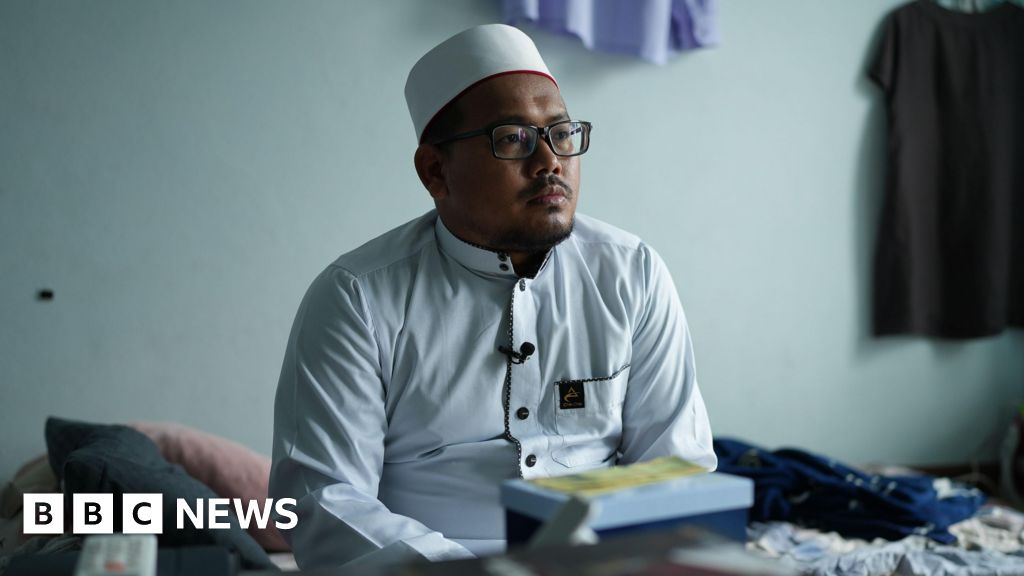ARTICLE AD BOX
By Magdi Abdelhadi
North Africa analyst
image source, AFP
image captionKing Mohammed VI moved swiftly in 2011, amid the Arab Spring, to bring in constitutional changesMorocco's governing Islamist party has suffered a shocking defeat in recent elections - a turn of events reverberating across North Africa given its pioneering role for political Islam amid the Arab Spring.
The Islamist Development and Justice Party (PJD), which was the first Islamist party to come to power in an election in the region and the wider Middle East, found its share of the vote was decimated from 125 to a mere 12 seats.
Back in 2011 the sense of a new beginning for many in Morocco was real.
The development chimed with the times.
The protests that erupted first in Tunisia, later known as the Arab Spring, were in full swing. Zine al-Abidine Ben Ali of Tunisia, Hosni Mubarak of Egypt and Muammar Gaddafi of Libya were all toppled that year.
Islamists parties were poised to win elections in Egypt and Tunisia and to change the course of history, as many had hoped.
Morocco's King Mohammed VI saw where the wind was blowing and acted swiftly to pre-empt any similar upheaval that could threaten his throne.
image source, AFP
image captionDuring the Arab Spring, protesters in Morocco were also demanding change, calling for reformsHe sacked the cabinet and dissolved parliament. To stem the tide of rising protests he announced plans to draft a new constitution to put Morocco on a new path.
'Cosmetic changes'
It was later approved by a resounding 98.5% of the vote, hailed as a game changer, and helped portray the king as a benign autocrat willing to share power with the people.
But the reforms promised by the king were dismissed as cosmetic by the February 20 Movement for Change, the banner under which demonstrations were organised during the Arab Spring.
image source, AFP
image captionThe PJD made history in North Africa when it won elections in November 2011It had taken to the streets demanding radical reform to turn Morocco into a constitutional monarchy, where the king would "reign but not rule", a symbol of the nation - more in line with European monarchies in the UK or Scandinavia.
In fact, the king had retained nearly all the powers he had held in the past in the new constitution. He continued to control foreign, defence and security policy.
He also retained his position as the spiritual leader of the nation - he's officially the "Commander of the Faithful", an historic description used nowhere else today, and is based on a claim that his dynasty is a direct descendant of Prophet Muhammad.
However, the new constitution held out the promise of a new beginning to parts of the political class, including the PJD.
The party seized the opportunity and rode on the crest of the wave of widespread discontent with the old political parties.
And the king and his courtiers - which has reluctantly tolerated the Islamists - did not block their rise to complete the democratic façade, while maintaining the strings of real power within its grip.
The PJD further increased its share of the vote in subsequent elections in 2016 to 125 seats to spend another five years in power.
Poisoned chalice
Although almost everyone expected the party to shed some votes in the election last week, no-one predicted this crushing defeat - even the leader of the party and his deputy lost their seats, prompting their immediate resignation.
It is perhaps too early to fully account for the reasons of this dramatic fall. But observers concur that PJD has simply failed to deliver on its electoral promises.
image source, AFP
image captionTeachers see the change to their contracts as the first attempt to dismantle the public education systemA party that has "justice" and "development" in its name has failed to deliver either, they argue.
It had, for example, promised to lift more Moroccans out of poverty, improve public education and health, but failed to do any of that. On the contrary the gap between the rich and the poor has simply widened.
Further, the party has alienated some of its base when it endorsed a controversial law introducing two-year contracts for teachers, robbing them of job security and is regarded by some as the first step in privatising the education system.
On the question of the status of the French language in education - a particularly sensitive topic for a party that champions Arab-Islamic identity in the former French colony - it failed to block a law that made French the language of teaching science in schools.
Critics of the party say once in power it became more royalist than the king, taking the side of the "makhzen" - the term Moroccans used to refer to the king and powerful courtiers and security agencies - against the people in key rights and labour disputes.
Some commentators believe that the party's biggest mistake was assuming the responsibility of government without actually having the real power, which rested with the king.
It was like a poisoned chalice.
All that said, the change to the electoral law, not proposed by the PJD but which was passed by parliament in March, also dealt a decisive blow to the party's chances of achieving another big electoral win.
Lowering the benchmark for smaller parties, and counting the votes on the basis of all eligible voters rather than on only valid ballots, contributed to the party's loss.
The party had contested these changes, saying they were unconstitutional, but had failed to block them in parliament.
On the face of it, the changes were designed to allow for greater plurality, but in reality they further fragmented the political landscape, a tactic that has long been used by the makhzen, says analysts, to undermine political parties.
Election charade?
Regionally, the news of the failure was greeted with jubilation.
In Egypt and the Gulf the party is viewed as the Moroccan version of the Muslim Brotherhood, a national and transnational political-religious movement that has been designated as "terrorist" in some countries.
image source, AFP
image captionBillionaire Aziz Akhannouch is to become Morocco's new prime ministerCommentators regarded the fall of PJD as the final nail in the coffin of political Islam.
In Morocco, it is safe to argue that the marginalisation of the PJD suggests that the makhzen has now completely weathered the storm of the Arab Spring and its immediate aftermath.
But the underlying tensions rising from the quest for truly representative and accountable government, or from the desire to check the powers of the king - have not gone away.
The man nominated by the king to form the new government, Aziz Akhannouch, the billionaire leader of the National Rally of Independents (RNI), which won the largest number of votes, has said that his government will work to "implement the strategy of the king".
Commenting on the statement, veteran Moroccan journalist, Hamid Elmahdaouy, wrote that all previous PM designates had said the same thing.
He wondered what was the point of the election musing whether "voting and the whole election was a charade".
You may also be interested in:

 3 years ago
66
3 years ago
66








 English (US) ·
English (US) ·